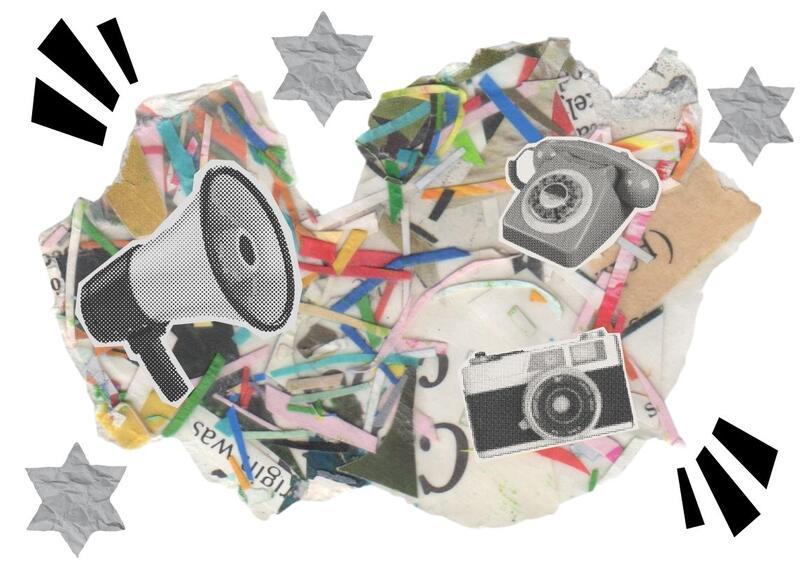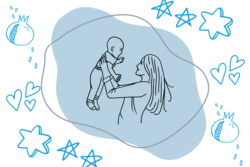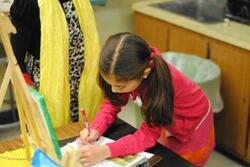Raised to Stand Up
There is no better moment for personal growth than in the late hours of a sleepover with your best friends.You’re gossiping, confessing, ranting, everyone cuddled in blankets and sharing a full bag of caramel M&M’s. Throughout my teenage years, I’ve enjoyed many sleepovers with my friends. Usually we talk about anything, and agree on everything.
But one sleepover revealed more than just gossip, sparking an essential conversation that helped me discover a part of my identity that I’d never noticed before.
Half of my friend group is made up of Jewish women, and it was my understanding that we were all raised by liberal parents on the same values of kindness and justice. So, when I started talking about this guy that we all know, a younger high schooler with a history of making antisemitic remarks that get passed off as jokes, I didn’t expect to hear anything besides “oh yeah, he’s the WORST!”
Instead, my friend (who isn’t Jewish) replied, “I don’t think he knows any better.”
I sat bolt upright, my head swimming with the lessons that I’d grown up learning standing up for the “other,” fighting for justice, questioning authority figures, vowing to never be a bystander. I held everyone to those standards. I said “He’s not a toddler, he’s a teenager. How could he not know any better?”
My friend reminded me that most of his older friends encourage his behavior by laughing at these jokes.
I shook my head in response and told her that I knew that neither of his parents were hateful or bigoted. “If he wasn’t raised to be that way, then he’s at fault for allowing other people to influence him.”
She paused for a moment, and I felt like I’d won this argument. Then slowly, she began to explain something I’d never considered. “My parents aren’t bigoted,” she said, “but they’re not vocal about it, either. We just never discussed racism or antisemitism or oppression in my house.” I started listening more intently. “I became friends with you guys early on, and that taught me a lot about how I wanted to view the world,” she said, gesturing to me and our other friend. “But if I had had the types of friends that this guy has when I was younger, who knows how I would’ve turned out?”
I sat with that insight as the conversation turned back to a debate about which Jane the Virgin boyfriend is better. I didn’t realize that my parents had specifically taught me any of the views that I’d held. They just seemed innate to me, genetic traits that were passed down from liberal New England parents to their children. But that wasn’t true. My parents explicitly educated me in social justice issues, and I realized not everyone learned these things as a child.
What was the difference between my parents and my friends’ parents that had shaped the way we were raised in such a prominent way? I can’t say for sure, but when I look back on the conversations that I’ve had in my family and communities, they’ve all connected to being Jewish in one way or another. Whether they’ve been sparked by an antisemitic attack in the news or a particularly interesting story at the seder table, my parents gave me this knowledge because of our family’s Jewish values and experiences, which not everyone’s family has. The knowledge that my ancestors had been ostracized and killed for their Jewish identities, the simmering and occasionally overwhelming feeling of “otherness” as a religious minority at my public high school, the antisemitic attacks that seem to be in the news every second of every day—my family didn’t talk about these because we wanted to, but because we had to. We don’t have the option to sweep issues of marginalization and discrimination and activism under the rug, because it’s who we are, and it’s the only way our people have been able to survive.
I slowly made the connection between growing up in a faith and community that has faced centuries of persecution, and my family’s commitment to fighting for equality for all marginalized groups. At that moment, I was reminded of the quote by German pastor Martin Niemoller who eventually became an outspoken critic of Hitler. This quote details the ways in which he neglected to speak up for various oppressed groups because he was not a part of those groups, and then states that “they came for me—and there was no one left to speak for me.” This quote has been plastered on the wall of every synagogue and Jewish community center that I’ve grown up in, and it is central to my understanding of what it means to be a Jewish woman. We need to speak up for others. Our own safety may depend on it, and it’s the right thing to do.
I believe Jews have a personal responsibility to stand up for others at any cost, because if we don’t, then how can we expect anyone else to advocate for us during times of oppression? Perhaps it is more difficult to understand that responsibility if there’s less of a reason to worry about being harassed or attacked in the first place.
I’m sure that growing up in a white, well-off household has led me to miss much of what it truly means to stand up for the “other” and push for a more just world. And when I have screwed up, it’s only in understanding how the way I’ve been raised has affected my perspective that I’m really able to learn. So while I will not forgive and forget my classmate’s repeated antisemitic jokes, this experience allowed me to find a connection between my Jewish identity and my worldview, helping me understand where I come from and engage productively in difficult conversations with people I disagree with.
This conversation made me grateful for my Jewish upbringing and how my faith has given me invaluable training in justice and equality, and also for the essential role that friendship plays in the fight for equality. Friendship is a powerful means for activism, for plunging into difficult conversations and challenging one another, and for giving one another the tools and space to grow as activists and people. Especially under the blankets at sleepovers.
This piece was written as part of JWA’s Rising Voices Fellowship.







